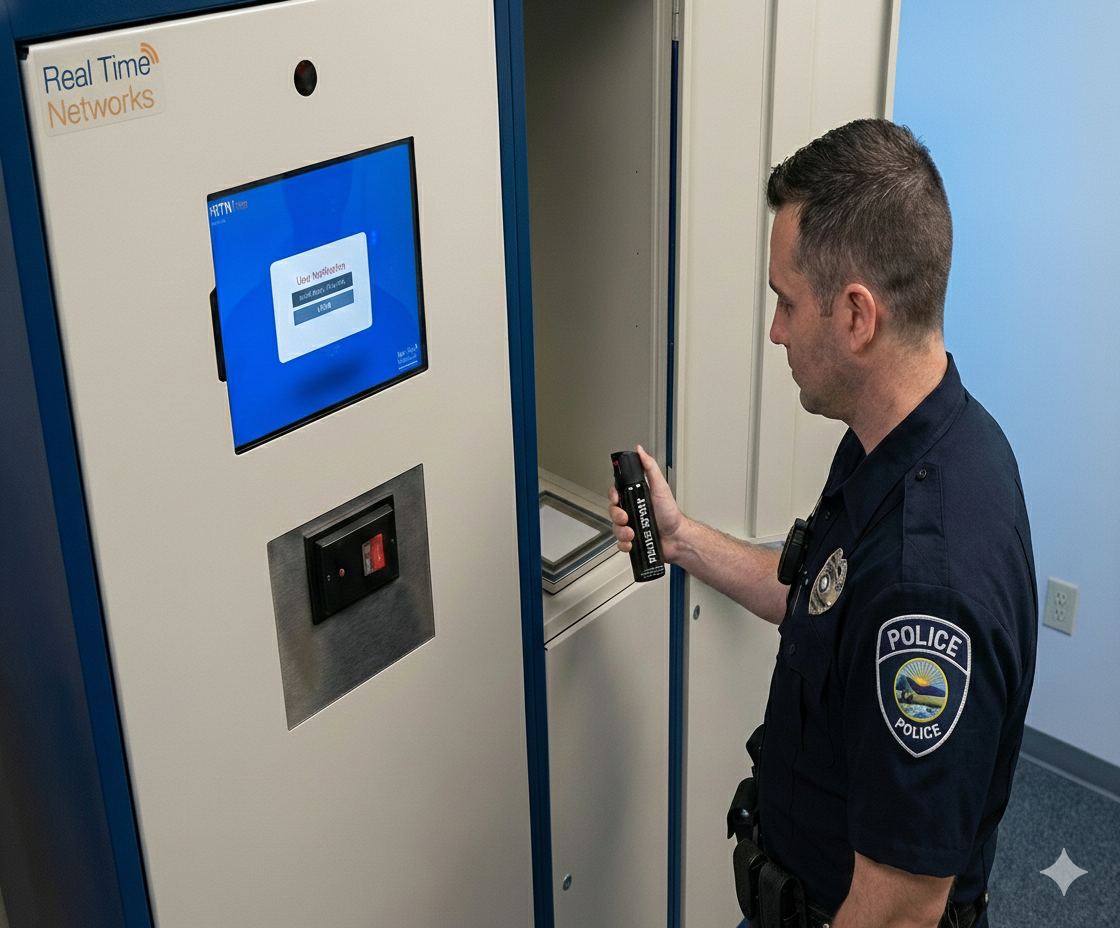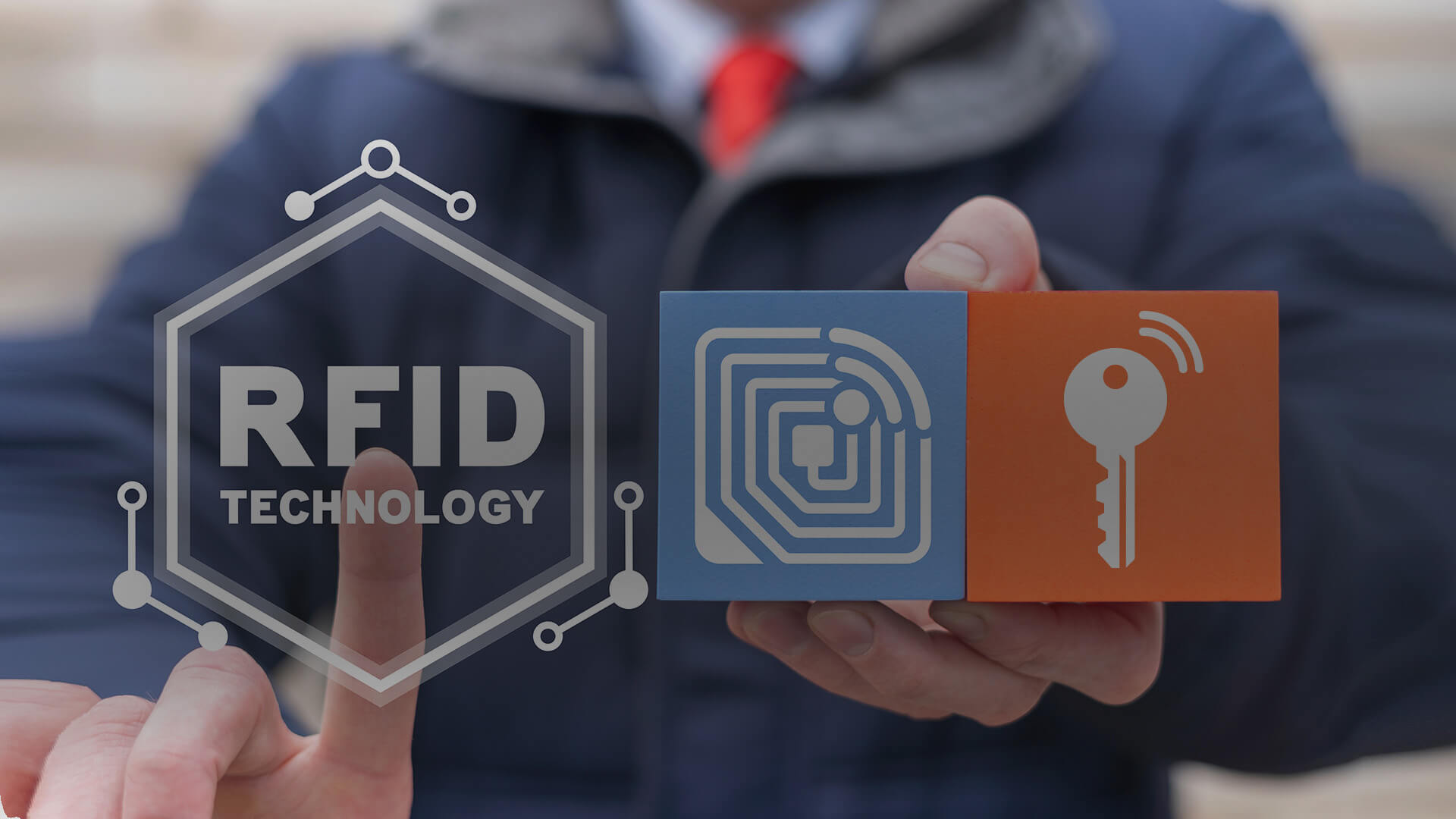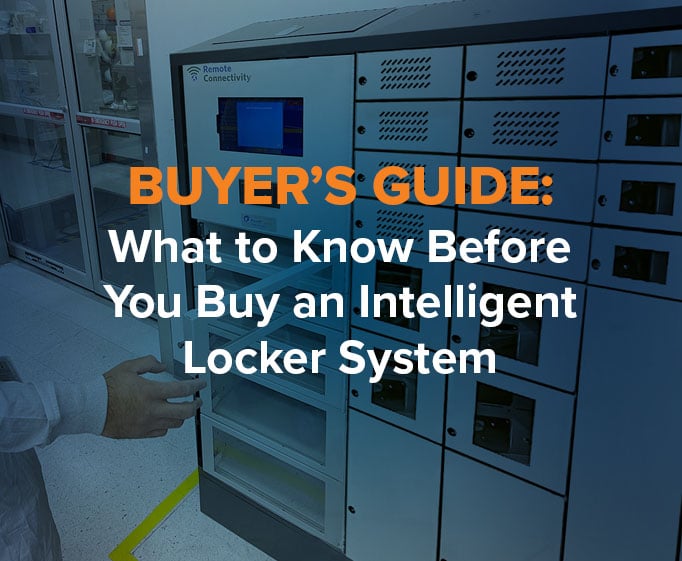By Jay Palter | June 22, 2022
Security professionals often don’t realize how critical physical key security is in casino gaming. The world is going increasingly digital, and gaming is no exception. The loss of a single key can lead to steep fines and force casinos to rekey entire wings of their venue to the tune of five or sometimes even six figures. In rare cases, a single lost key can result in major theft too.
Table of Contents
Too many casinos still rely on 20th-century key control technology, which only has 20th-century capabilities. In our increasingly digital world, casinos that want to stay competitive need every edge they can find to stay ahead. RFID (Radio frequency identification) smart key management systems can help get you there.
Is RFID the right solution for your venue? It’s the best choice in most cases, but not always. Casinos don’t have time to waste on technology that isn’t the right fit for their needs or budget.
This article is Real Time Networks’ no-nonsense guide to RFID key control in gaming and casinos. Read on to find out what RFID does better than traditional metal-on-metal key lockers and learn why networked smart management makes sense in today’s wireless business world.
How Radio Frequency Identification (RFID) Key Control Works
RFID is a short-range wireless radio communication standard. It is the same technology used in tap-to-pay credit and debit cards, but the more advanced RFID chips used in key management systems can work at an extended range.
Several different, connected casino key control systems can use RFID controls for casino security. For example, key lockers can have scanners embedded in their access panels and lock slots that verify the identity of the key ring signed out or returned. And then, key alarm sensors placed near exit points can identify when a tagged keyring approaches an exit point.
Unlike other common wireless standards, RFID doesn’t require line-of-sight to work, as signals can pass through wood, plastic, and other common building materials. However, metal reflects RFID signals, so it might not be the best choice in some environments.
RFID Tags for Key Management
RFID is one of many popular wireless standards used for technology in business settings, but it is perhaps the best choice for key tracking. RFID key tags come in both active and passive versions.
Active-powered RFID tags include a small battery to boost their signal so sensors can read
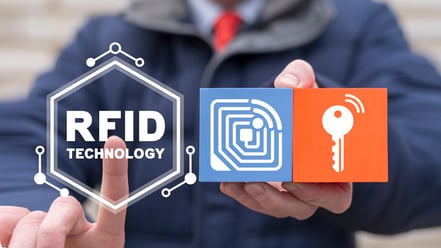
them at a distance, typically up to about 20 meters. They’re more versatile but can also be more expensive and must be replaced when the battery eventually wears out.
Passive RFID tags have no internal battery. Instead, they draw wireless power from a sensor when they’re in close proximity, such as when taken or removed from a sensor-embedded lock slot. They are solid state technology and durable. Providers, like Real Time Networks, issue them with a lifetime warranty.
In addition, passive tags are small enough to fit on even the smallest key rings. They can even be embedded into critical assets, like casino security radios, when the tags are used for asset tracking.
12 Reasons to Choose RFID for Casino Key Tracking
So you now understand how RFID tracking technology works. But what does it have to offer casinos that regular old metal-on-metal key tracking can’t already do? Many things.
Here are 12 advantages to using RFID for key tracking.
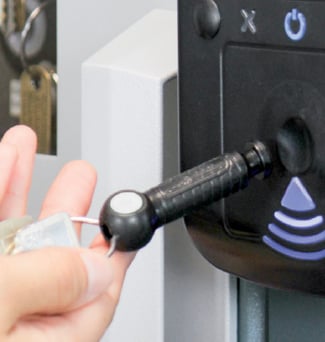
1. Durable Tags
As we’ve discussed, RFID tags are incredibly durable, especially passive keyring tags. Are your employees rough on your equipment? Are they constantly breaking high-security keys and plastic key tags? They won’t break RFID key fobs. We’ve put them through a rigorous torture test.
2. Fast Transactions
RFID doesn’t sacrifice any usability in that more rugged design. Sensors can read tags in milliseconds, making RFID key lockers ideal for high-traffic casinos. You need your casino staff getting in and out in seconds and back on the floor. So even at high volume transaction times, like during shift changes, the locker system gets workers through fast.
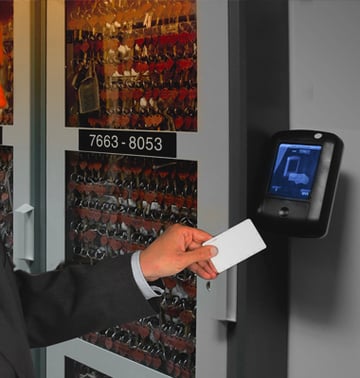
3. Low cost
RFID tags are durable and rarely break, which is why RTN offers a lifetime warranty on tags. But they’re still very cost-effective. These inexpensive tags have powerful capabilities for what amounts to a bit of hardened plastic with a computer chip embedded.
4. Unified Management
Modern RFID key systems are networked, which means you can have a sprawling venue with key lockers everywhere, and manage them together from a single software dashboard. You can also network together different systems, like key exit and asset storage systems with key lockers, and manage them together from the same dashboard.
Real Time Network’s software is browser-based, which means you can manage your key lockers from any authorized PC, tablet, or phone.
5. Fool-Proof Use
RTN key fobs are cylindrical, which means there is no right or wrong way to insert them into a lock slot. The RFID sensors can also identify a key stored in any locked slot. When a user signs out a key, the lock slot lights up wherever the key is so that users can find it.
6. Automated Key Tracking for Gaming Regulatory Compliance
In many jurisdictions where casinos operate, key tracking is strictly regulated. A key exit alarm system paired with a key tracking locker can give you instant awareness about who has which keys and where in real-time anywhere in your venue.
7. Reduce the Risk of Insider Threats
As some casinos have learned the hard way, an insider threat can do far more damage than a bad external actor ever could. RFID key lockers support dual authentication key sign-outs and other advanced features necessary for managing high-risk keys.
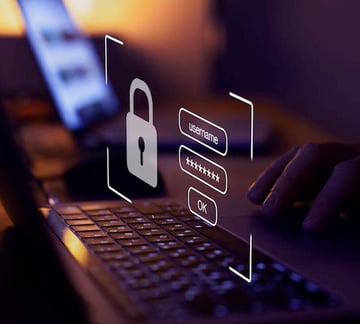
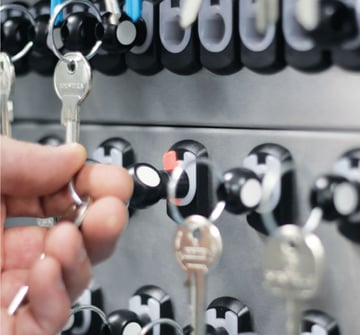
8. Eliminate Human Error
A user can't put a key in the wrong lock slot because there isn’t a “wrong one.” Any open slot can accept a returned key, and the system will identify its location. That helps ensure that keys are always findable when the next user needs them. No more hunting for hours for a key left in someone's pocket or simply returned to the wrong key slot.
9. Adaptable Workflow Support
RFID key lockers not only improve how casino workers already work, they support entirely new workflows not possible before. You can create checklists that employees must complete at signout or return to the access terminal. For example, you can prompt employees to report any issues using the keys or damage to the keys or tags. Supervisors can receive instant alerts, and you can expedite repairs.
10. Improve Everyday Operations
Switching to RFID key tracking allows you to redirect staff members involved in the manual collection of the information you can now get from automatic key tag scans and checklist entries. You can turn them to more productive work on your gaming floor or in the back office. As a result, keys stay secure, and you concentrate your human resources where they can do the most good.

11. New Performance Insights
RFID key lockers not only improve how casino workers already work, they support entirely new workflows not possible before. You can create checklists that employees must complete at signout or return to the access terminal. For example, you can prompt employees to report any issues using the keys or damage to the keys or tags. Supervisors can receive instant alerts, and you can expedite repairs.


RFID Limitations You Need to Know
So you now understand how RFID tracking technology works. But what does it have to offer casinos that regular old metal-on-metal key tracking can’t already do? Many things.
Here are 12 advantages to using RFID for key tracking.
Signal Interference
As we've discussed, RFID signals can pass easily through paper, plastic, and other organic materials like wood. But metal and water can both interfere with signals. Think about the layout of your facility if you’re considering a key exit alarm system in a mostly metal venue, like a riverboat. Signals will bounce down the length of every hallway, giving you a nonstop stream of false positives.
Instead of a key exit system in that setting, you might want to consider other casino security measures to control key signouts. For example, you might want to set curfews on key transactions so supervisors receive instant alerts when a key is overdue for return.
Read Range
Sensors need to read passive tags at close range. They can’t be read at long range as actively-powered RFID tags can. So consider when and where it is appropriate in your venue to use passive tag key tracking.
There are potential read issues at range with actively-powered tags too. For example, sensors can read active tags up to 20 meters away, but they have difficulty determining how close tags are once they’re less than 5 meters away or so.
That can be an issue in tightly packed offices. For example, if there is a thin wall between your rear exit and your breakroom. If employees routinely take keys into the breakroom, you may get a constant stream of false positives from the rear exit alarm.
RFID Key Tracking Can Power Up Your Casino
RFID tracking can be the solution you need to get more out of your employees and the money you spend on key management. It can improve your key security and offer new workflows to boost your casino's performance.
Want to learn more?
Schedule a free consultation with an RTN casino security expert today.Subscribe to our blog

Jay Palter
Vice President of Marketing & Partnerships

